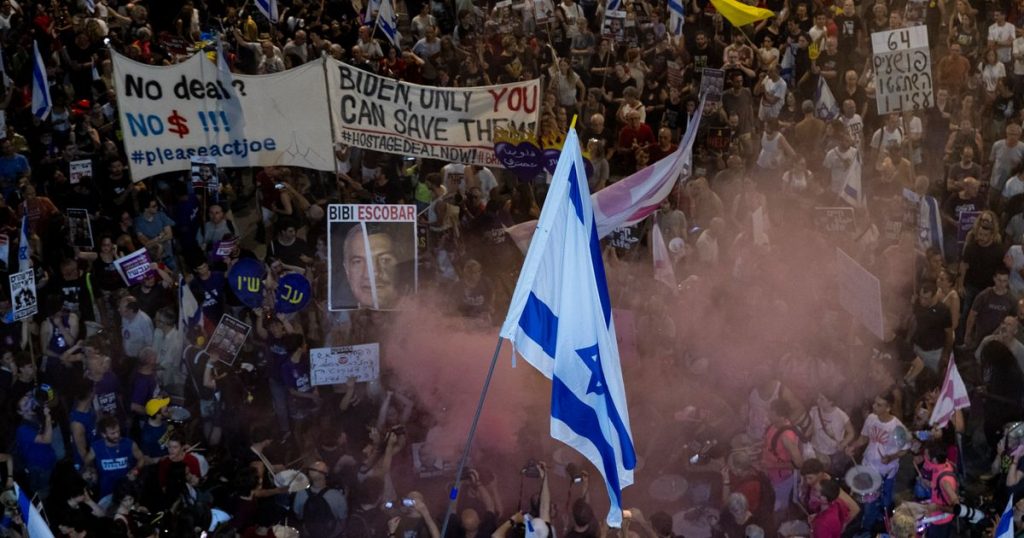High-level talks in Cairo between Israel and Hamas to bring about a cease-fire and hostage deal in Gaza ended without a final agreement, with lower-level working teams continuing discussions in the coming days. The recent conversations, which involved CIA director William Burns and David Barnea, the head of Israel’s Mossad intelligence agency, were described as constructive. The U.S., Qatar, and Egypt are working to address remaining disagreements and reach a final and implementable agreement. A Hamas delegation was briefed by Egyptian and Qatari mediators but did not directly participate in negotiations.
Israel and Hezbollah engaged in a heavy exchange of fire but avoided sparking an all-out war, signaling the most intense confrontation between the two sides in months was over. Hezbollah launched a barrage of rockets and drones, claiming to have hit an Israeli military intelligence site near Tel Aviv. Israel responded with dozens of strikes that it claimed were preemptive to avert a larger attack. Both sides targeted military installations, resulting in casualties on both sides. Israeli Prime Minister Benjamin Netanyahu warned that this was not the end of the story, indicating a potential for further conflict.
Hezbollah leader Hassan Nasrallah stated that the attack on Israel was a delayed response to the killing of a top militant commander in Beirut last month. Nasrallah also mentioned that the attack was held back to give the Gaza cease-fire talks a chance. Israel and Hezbollah claimed to have aimed only at military targets, with Israel eliminating thousands of rockets aimed at its territory. The U.S. and other mediators are emphasizing the importance of a Gaza cease-fire as a means of preventing a wider Middle East conflict.
The United States and its allies are closely monitoring the situation between Israel and Lebanon, with President Joe Biden and Defense Secretary Lloyd Austin following the developments. The U.S. military has been preparing its forces in the region, and discussions are ongoing to address threats in the Middle East. Gen. CQ Brown of the Joint Chiefs of Staff arrived in Israel for meetings focused on joint preparations in response to regional threats. Both Israel and Hezbollah are trying to balance the equation without escalating into a full-scale war.
Hezbollah began attacking Israel almost immediately after the start of the conflict in Gaza between Israel and Hamas, leading to frequent exchanges of fire and displacing thousands of people on both sides of the border. Tensions have been escalating, with both sides trying to avoid a wider confrontation. Hezbollah, which fought Israel to a stalemate in 2006, is believed to be more powerful now, with a significant arsenal of rockets and drones. Israel has an extensive missile defense system and is supported by a U.S.-led coalition.
The U.S. and other mediators continue to engage in talks with Israel and Hamas in an effort to reach a truce and secure the release of hostages held by the Palestinian group. Lower-level working teams are working to address remaining disagreements and finalize an agreement that can be implemented. The goal is to prevent further conflict and ensure stability in the region. The situation remains tense, with the potential for further escalation if an agreement is not reached soon.


